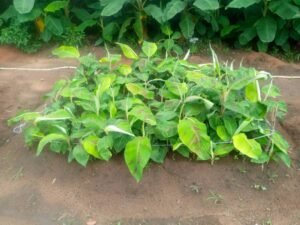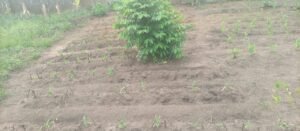THIS IS GOOD FOR YOUR PLANTING, BEST IN WHATEVER PARAMETER YOU CHOOSE TO MEASURE!
PLEASE FEEL FREE TO DISCUSS YOUR ORDER WITH US BY CLICKING THE WHATSAPP BUTTON ON THE LEFT OR RIGHT, AS WE CUSTOMIZE TO EACH CLIENT’S REQUIREMENT WHETHER MANURE OR LIQUID FERTILIZER/PESTICIDE.
The key difference between MAP and DAP fertilizer is that MAP fertilizer contains about 10% nitrogen, whereas DAP fertilizer contains about 18% nitrogen. MAP and DAP fertilizer are types of ammonium fertilizers. These fertilizers are widely used for agricultural purposes as sources of nitrogen and phosphorus.
THIS IS LIQUID PESTICIDE AND FERTILIZER IS AVAILABLE IN LITERS. PEACE OF MIND AND CANCER FREE HARVEST!!!!
ORGANIC MANURE:-
One of the benefits of rabbit poop- Rabbit manure is considered cold manure which you can directly apply to your garden without any other process like of composting or waiting for some time. It is healthy for the plants as it is and it has one of the highest nitrogen content, higher than the cow, goat, sheep, horse or chicken which means you need lesser quantity to yield good result for your garden. Happy planting and happy farming!
RABBIT MANURE AS FERTILIZER:-
⭐ RABBIT MANURE DOES NOT BURN PLANT
⭐ YOU DON’T HAVE TO LET RABBIT POOP TO AGE OR COMPOST BEFORE USING IT.
⭐ YOU CAN USE IT TO TOPDRESS VEGETABLE OR YOUR PLANTING.
⭐ RABBIT MANURE IS PACKED WITH NITROGEN, PHOSPHOROUS, POTASSIUM AND MANY MINERALS.
⭐ RABBIT MANURE IS HIGHER IN NITROGEN THAN SHEPP GOAT, CHICKEN, COW OR HORSE MANURE.
PLANTS NEED NITROGEN TO PRODUCE STRONG GREEN GROWTH.
⭐ R.M . IS ALSO HIGHER IN PHOSPHOROUS THAN THE OTHER MANURES.
IT HELPS WITH THE TRANSFORMATION OF SOLAR ENERGY TO CHEMICAL ENERGY.
⭐ PHOSPHOROUS ALSO HELPS PLANTS TO WITHSTAND STRESS AND CONTRIBUTES TO MORE AND BIGGER BLOSSOMS AND IS GREAT FOR ROOT GROWTH.
⭐ POTASSIUM HELPS WITH FRUIT QUALITY AND REDUCING DISEASE. PLANTS WILL NOT GROW WITHOUT IT.
Result analysis from the laboratory of rabbit urine should give Nitrogen: 13.3 g/l; Chloride (Cl-): 5.87 g/l; Sodium (Na+): 3.17 g/l; Potassium (k+): 1.750 g/l; Inorganic sulfur (S): 0.163 g/l; Phosphate (P): 0.95 g/l; pH: 5:6.
In additional experiments, research done to removed the kidneys from antidiuretic, or urea- or mannitol-infused rabbits and measured the intrarenal distribution of sodium, potassium, urea, and chloride. When the urine urea level was greater than 400 mmoles, the urine-to-papilla ratios for urea were 1.6 to 3.6.
Experimental Research Findings using Rabbit Urine–
MELON Response to Growth and Yield Melon Plant (Cucumis Melo L.) in the Giving of Rabbit Urine and KNO3
Fresh weight of fruit per plant in the treatment of KNO3 giving 200 kg ha-1 provides the highest value is 903.21 g was significantly different from giving treatment KNO3 100 kg ha-1 783.36 g which increased by 15.29% and significantly different without giving 651.37 g KNO3 where the provision of 200 kg ha-1 increased by 38.66% compared with no provision of KNO3*.
APPLICATION :-
Give once a week as a fertilizer. Experience will tell how often to use and how much.
To top-dress a plant, spread no more than a ½ to 1-inch layer of rabbit droppings around the plant. Make sure the rabbit poop pellets do not directly touch the plants.
Apply (90.72-181.44)KG per 92.90304 square meters.
IN ZUCCHINI, increase of 16.09% when compared to the treatment without compost on zucchin
The reason for stating ZUCCHINI is it’s similarity with cucumber 🥒
URINE:-
The crops should be sprayed either early in the morning, or late in the evening, it is a foliar fertilizer and it can only be effective when the stomata of the plants are open to absorb the mixture (plants close their stomata during the day to avoid excess loss of water due to sunlight).
Note that;
The use of rabbit urine as a fertilizer should be repeated at different stages in the life cycle of the plant growth, for example, when you want to apply it to fruits; it should be done at sprouting, coloring and the flowering stage. There is no need for application of extra fertilizer in the soil, because the soil will already be rich with essential nutrients which are absorbed by the plant from the rabbit urine.
The rabbit urine is a very great alternative because it is purely organic, it does not get expired so far it is kept in a closed container to preserve the ammonia.
How To Use Rabbit Urine As Organic Fertilizer And Pesticide.
In organic crop production, rabbit urine can be a very cheap solution as fertilizer and pesticide. It would not only help to reduce the high cost of organic farming but also increases the quantity and quality of the crop produced.
It is important you control pests and increase the fertility of the soil if you truly want to be successful as an organic farmer; not just any means but a cheap means. I am sure you do not want to produce at a high cost.
Further studies have shown that rabbit urine can serve as fertilizer and pesticide, improving the soil fertility of the soil and controlling unruly crop pests,
Composition Of Rabbit Urine
Rabbit urine contains the highest level of Nitrogen compared to other farm animals; this is because rabbits barely drink water. The Phosphorus and Potassium contents in rabbit urine are of appreciable level good enough to eliminate deficiencies of these nutrients in the soil, hence, it enhances the even growth of crops in an organic farm.
The microelements can also be sources from rabbit urine in good quantities because rabbit, after eating, produces soft-pellet feaces rich in amino acids and minerals, through a process called caecotrophy. These soft pellet feaces is re-ingested by the rabbit to supply or supplement the nutritional need of the rabbit.
Crops You Can Use Rabbit Urine As Fertilizer And Pesticide
Because rabbit urine is very rich in nitrogen, it is very effective on vegetable crops like cabbage, lettuces, cucumber, watermelon, plantain, Ugwu, other vegetables at any stage of growth. It can also be used at the early stage of other crops like maize.
How To Apply Rabbit Urine As Fertilizer
Here comes the subject of discussion. Like other fertilizers; there are some processes and precautions you must take when you want to apply rabbit urine as fertilizer.
Do not apply the rabbit urine directly on the crops, it is highly concentrated and can scorch your crop; you need to dilute with water for safe use. Rabbit urine is best used as fertilizer by mixing it with water at a ratio of 1:5; that is, one (1) liter of the urine to five (5) liters of water.
There are different methods of fertilizer application, depending on the type and nature of the fertilizer you want to apply. Because rabbit urine fertilizer is in liquid form, it is best applied using fertigation or foliar application.
Fertigation is a method of applying liquid fertilizer through irrigation water; you mix the urine in the irrigation water at the recommended rate as stated earlier.
Foliar application is another method of applying fertilizers in liquid form through the leaves and stem of the plant.
In fertigation, the rabbit urine is diluted with the irrigation water and it is applied to the root zone using drip tubes or other means. Alternatively, the foliar application applies the fertilizer to the leaves, stems, at times, root region.
The advantages of fertigation are; it is easy to achieve, less time consuming and application is done to the roots directly where the plants utilize it. The advantage of the foliar application is; it allows the plants to have easy access to the fertilizer, thereby, enhancing the perfect utilization of the fertilizer. Plants absorb the fertilizers through parts like lenticels, stomata aside from the roots. Although, it could be stressful and time-consuming.
The crops should be sprayed either early in the morning, or late in the evening, in the foliar fertilizer and it can only be effective when the stomata of the plants are open to absorb the mixture (plants close their stomata during the day to avoid excess loss of water due to sunlight.
For the conventional 16 liters sprayer, you need 3.2 liters of rabbit urine to 16 liters of water for perfect use.
Alternatively, you can add some materials to the rabbit urine to make it more effective and nutritionally better. You can mix the rabbit urine with maize starch and molasses and allow to ferment for 3 weeks before using it.
After 3 weeks, the fertilizer is ready for use but at a different rate of application. Dilute one liter of this mixture in 20 liters of water. You can apply using any of the aforementioned methods of fertilizer application.
How To Apply Rabbit Urine As Pesticide
Rabbit urine can also be used as an organic pesticide. The difference between synthetic pesticides and organic pesticides is just their reaction with the target pests.
Synthetic pesticides kill the pests which, at times, may be beneficial to the plants in terms of pollination while organic pesticides repel the pests from the plant. Rabbit urine is an organic pesticide as it repels the insect pests through its pungent smell.
Rabbit urine repels insect pests like aphids, mites, bugs, leaf miners, bugs and other crop pests of economic importance. You can only enjoy the pesticide effect of rabbit urine when you apply using the foliar application. It does the work of fertilizer and pest control.
Advantages of using rabbit urine as fertilizers and pesticides
The following are the merits of using rabbit urine as fertilizers and pesticides:
• It can be cheaply sourced
• It contains a high level of nitrates, which the plants can derive enough nitrogen from.
• It is environmental friendly and non-toxic.
With rabbit urine, the problem of fertilization and pest attack in organic farming can be resolved at a low cost.
RABBIT MANURE
N – P – K VALUES –
Rabbit= N- 2.4 P- 1.4 K- .60,
Chicken=N- 1.1 P-.80 K- .50,
Sheep=N- .70 P- .30 K-.60,
Horse=N- .70 P-.30 K- .60,
Steer=N- .70 P-.30 K-.40,
Dairy Cow=N- .25 P-.15 K-.25
As you can see by the nutrient values of farm manures and how they measure up and rabbit manure really shines! Rabbit manure also doesn’t smell as strong as other manures making it easy to use.
Nitrogen(N)- Rabbit manure is higher in nitrogen than sheep, goat, pig, chicken, cow or horse manure. Plants need nitrogen to produce a lush green growth. Nitrogen helps plants grow greener and stronger helping the plant reach its full potential. This is great for all those quick growing salad greens! Great for the early growth of tomatoes, corn, and many other vegetables.
Phosphorus(P)- Rabbit manure is also higher in phosphorus than the other manures. It helps with the transformation of solar energy to chemical energy. Which in turn helps with proper plant growth. Phosphorus also helps plants to withstand stress. Phosphorus in the soil encourages more and bigger blossoms helping with flowering and fruiting also great for root growth.
Potassium(K)- Potassium helps with fruit quality and reduction of disease plants will not grow without it. Plants use potassium as an enzyme to produce proteins and sugars.They also uses potassium to control water content.
More than just the awsome NPK values of rabbit manure it is loaded with a host of micro-nutrients as well as organic matter that improves soil structure, drainage, and moisture retention. Vegetable gardens, pastures, and flower gardens all will benefit from using rabbit manure. It helps retain soil moisture and soil structure.
Rabbit manure is one of the few fertilizers that will not burn your plants when added directly to the garden and can be safely used on food plants
Use It As Is – “Bunny Berries” – Because rabbit manure is dry, odorless and in pellet form makes it suitable for direct use in the garden. It can be applied any time of the year and helps give your plants a boost during the growing season or as a storehouse of nutrients when applied in the late in the year. Because it is considered a cold manure there is no threat of burning plants and roots. So use it as a top- dressing, mulch around plants, bury in the ground under transplants or just working it into the soil. This is the easiest way to use your Super fertilizer! Grab a handful and add it to your garden today. The Berries are a time release capsule of goodness for your soil. This is the way to use it.

Customer Feedback
Below are Feedback from FERTILIZER application by clients.
Customer in Owerri

Customer in DELTA

*SEAS (Sustainable Environment Agricultural Science)



This is small scale farming I need your Organic manure for planting. Price needed and how to book for it.
Pls what’s your location sir?
What quantity are you looking at?
Send messages to this WHATSAPP number 08037045688. We are at your service.